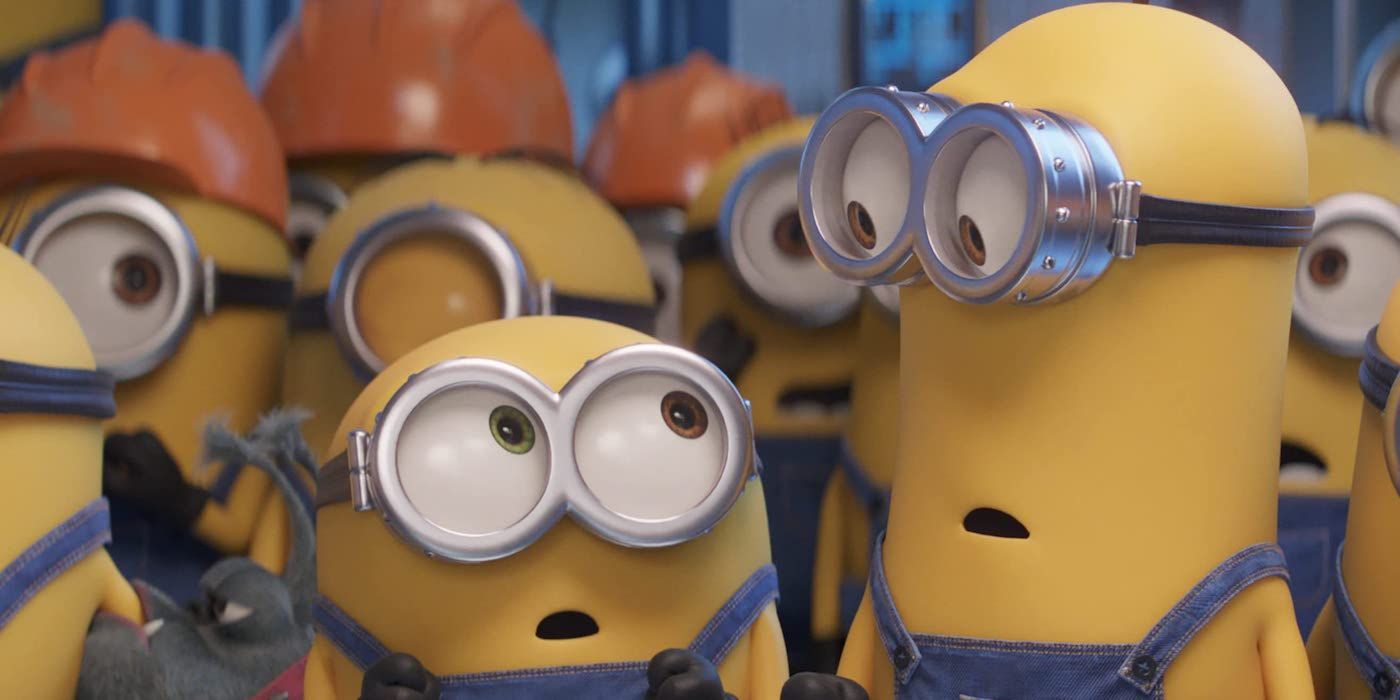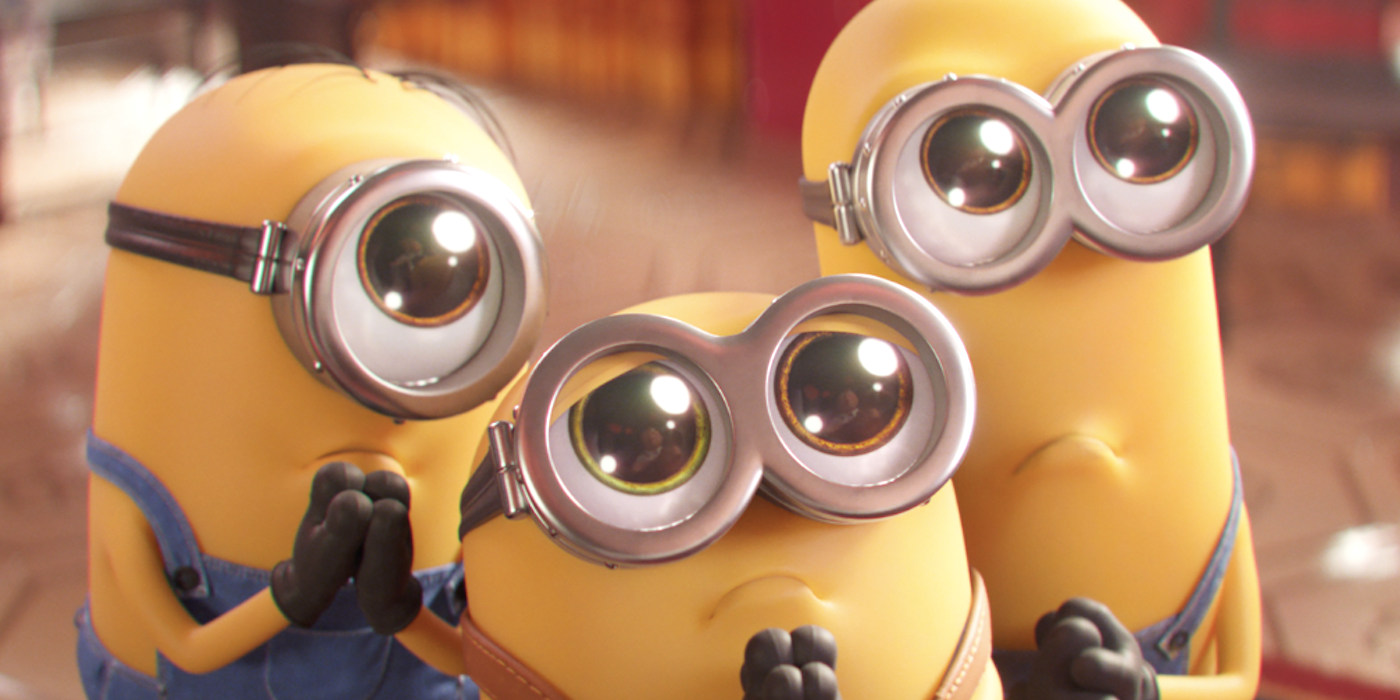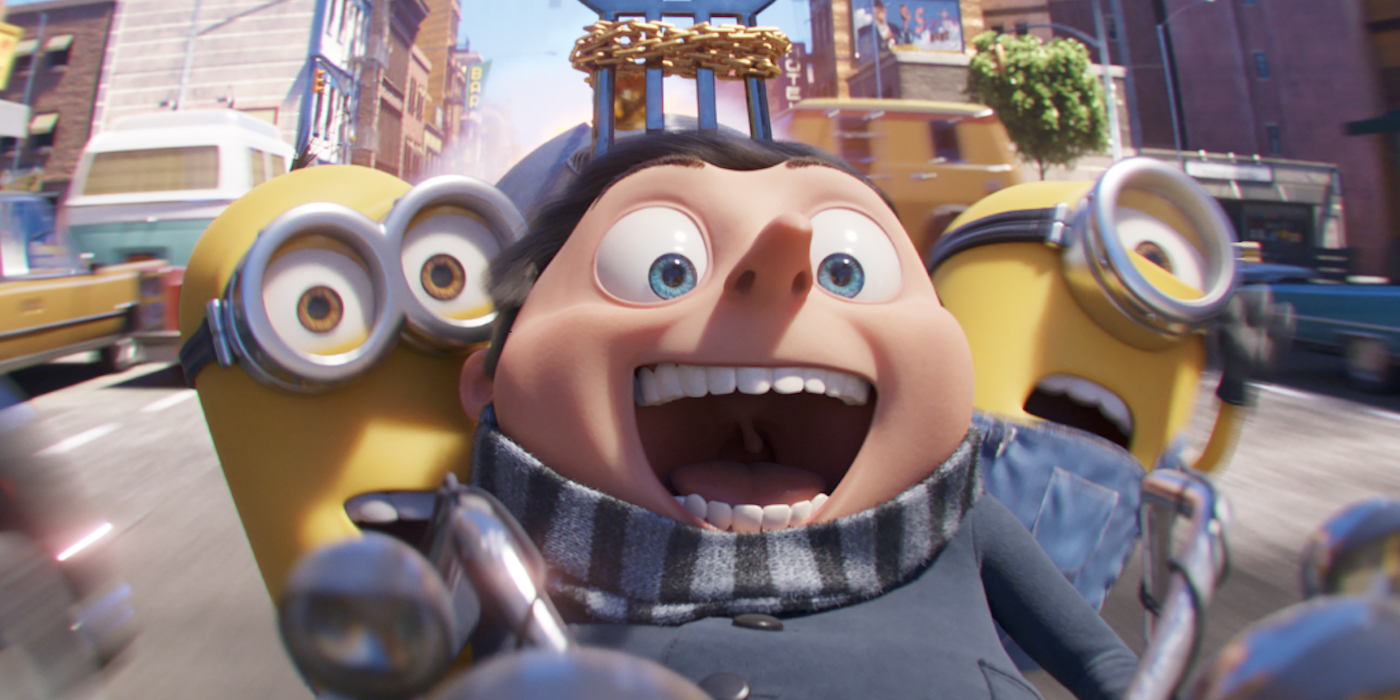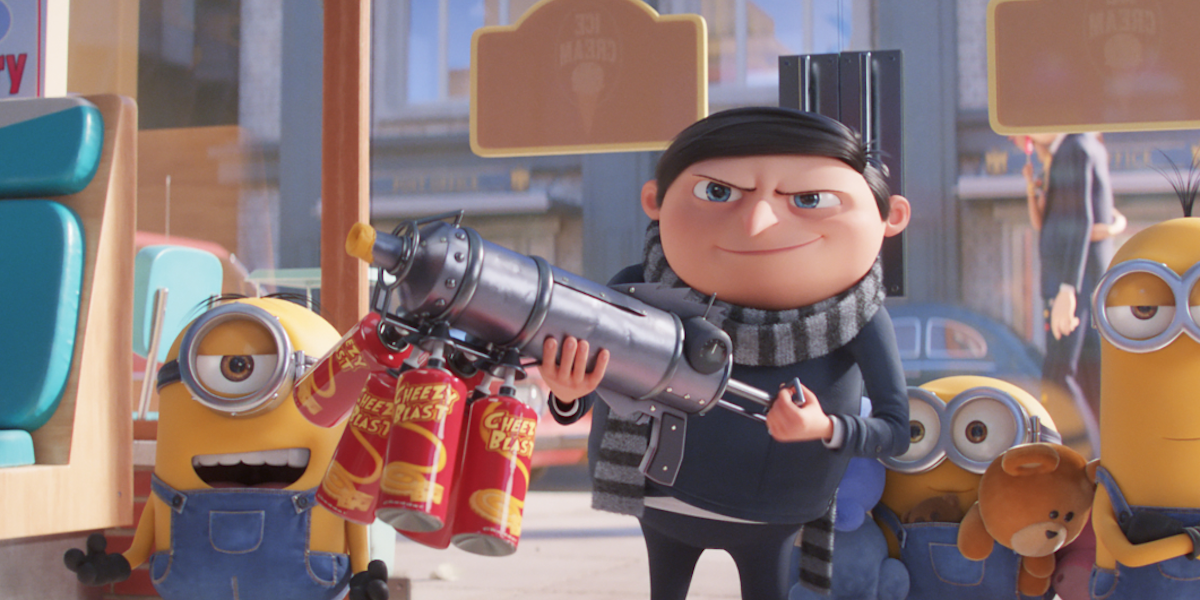In 2010, the world was introduced to a horde of yellow, overall-clad creatures: the Minions. These banana-loving evildoers followed their leader, Gru (Steve Carell), in all of his villainous pursuits, yet even over a decade later, the larger dynamics of power at play have gone widely unscrutinized. Is it because this relationship between Despicable Me's Gru and his Minions (Pierre Coffin) in no way warrants any level of serious discourse? Possibly. But another possibility lies in the fact that we simply haven't had enough information available to us about the origins of the Minions' employment to Gru. Until now. The Minions: Rise of Gru finally shines a light on the wider symbolic implications of these chaotic creatures, how they came under Gru's employment, and what they can teach us about our own world.
What It Means to be a Minion
Just the term "minion" is synonymous with words like follower, underling, and servant, all of which accurately represent the creatures of the Despicable Me franchise. Since their very inception, the Minions have served as a comical representation of an idealized capitalist workforce. They are immortal, meaning they require no healthcare, no sick days, and no work safety protocols. Not only that, but they are unfailingly loyal, hardworking, and nearly uniform in appearance. In a clear life purpose, they are determined to follow the most evil being on the planet, a mission with high capacity for occupational allegiance, yet still highly changeable to meet the needs of the "invisible hand" of villainy.
The aesthetic decisions behind the Minions' gear are not coincidental either: overalls, work boots, and safety goggles act as the epitome of a utilitarian labor outfit. These clothes are perfectly suited to their working conditions as they perform assembly-line tasks in a heavily industrialized environment, all reminiscent of post-Ford labor.
Gru (a literal robber baron) stands alone, towering over the Minions in both stature and prestige. For such a supposedly evil figure, it would seem probable that he would also perceive them as disposable, merely tools to enact his nefarious plans. However, as we are introduced to him in Despicable Me, that couldn't be further from the truth. It is only in The Minions: Rise of Gru that we understand the true dynamics at play.
Messaging Behind the Mini Boss
The Minions: Rise of Gru presents the esteemed villain with a character arc containing deeper messages than many would even care to consider. At the beginning of the movie, Gru doesn't see the Minions as more than a mildly useful nuisance. In fact, at the first chance of advancing his own personal goals through joining the Vicious 6, Gru is ready to drop the Minions altogether, not considering them ready for the "big leagues" of villainy. When Otto trades the Zodiac Stone for a pet rock, Gru's fears are seemingly validated, and he fires them completely. He utilizes their labor to build gadgets in his lair and to perform low-level schemes, but doesn't seem to value them much past their practicality. However, this all changes when he is taken captive by Wild Knuckles (Alan Arkin), sending the Minions on a quest to save him.
The Minions take it upon themselves to embark on a journey across the country, learn Kung Fu, and embrace their inner beasts to fight the super-powered members of the Vicious 6. Following this journey of self-discovery, the Minions impressively defeat the Vicious 6 as Gru watches, completely upending all expectations Gru had of them and proving their worth as individuals capable of personal contribution, not just valuable for their part of a collective laboring whole. Kevin, Stuart, and Bob's spirit animals are all different, and it is only through embracing their squandered individuality that they are able to win the battle.
Through this victory, Gru is able to understand that his workers hold more value than the simple products of their toil. He even recognizes the impact of such an uncaring attitude firsthand through his experiences with Wild Knuckes. Decades after forming the group, the other members of the Vicious 6 discard Knuckles for his old age, a choice they would come to regret as he helps the Minions defeat the team. This ageist disregard for individual value hits Gru hard as he finally realizes that even his idol is susceptible to such cruel practices. How is his dismissal of the Minions any different from the Vicious 6's treatment of Wild Knuckles? Through this experience, Gru learns lessons of ethical labor practices, something we see challenged in the later installments of the timeline.
No More Villainy
Minions: Rise of Gru presents a message to Gru about becoming a more morally conscious employer, though he seems to regress somewhat on these practices in later installments of the Despicable Me franchise. As a species, the Minions find purpose in their service of evil. In 2015's Minions, we see them isolated in a cave for decades, forming long lines for psychotherapy sessions to discuss their lack of fulfillment without a villain to follow. As they near extinction, it is once again Kevin, Stuart, and Bob who embrace their individual identities to set out for a new boss, eventually ending up with Gru. This working relationship operates for years (including the origin we see in The Minions: Rise of Gru) but is cut short by the introduction of the girls: Margo, Edith, and Agnes (Miranda Cosgrove, Dana Gaier, Elsie Fisher). After Gru adopts his daughters, the Minions are expected to perform emotional labor as well as physical, tending to the girls' needs at times when Gru is otherwise occupied.
Though Dr. Nefario (Russell Brand) rejects the new status quo, the Minions still seem fulfilled as Gru continues his evil antics. It is when he renounces his villainous nature in the two Despicable Me sequels, instead becoming a part of the Anti-Villain League, that the Minions once again face a dilemma. Gru does not take much notice of their many disappearances in Despicable Me 2 and fires the Minions (again) as they present him with an ultimatum in Despicable Me 3, a choice that results in their imprisonment.
It would seem that after several decades, Gru has taken his Minions for granted. The ethical practices Gru has learned in The Minions: Rise of Gru are forgotten, and he is worse off for it. In every single movie in the series, the Minions save Gru from a scenario in which he was certainly doomed, yet he treats them with a flippant disregard once another business opportunity presents itself. It's a harrowing realization that no matter how many times they rescue Gru, how many gadgets they produce for him, or how many years they have served him, they are not truly recognized as equals.
Gru is a member of elite socioeconomic status. Viewing his villainy as a business, Gru is an impressive entrepreneur, yet none of his capital could be achieved without the efforts of his Minions. It raises concern to realize, however, that despite the heartwarming foundation their relationship is built upon, the Minions will always stand below him. Peering up through their restrictive eyewear and work gear, their view will never be an advantaged one.
Since the very beginning of the Minions' career with Gru, he is constantly reminded of their value as both a collective and as individuals. Gru, doomed to repeat the same mistakes outlined in his adolescent origins, must recognize that he needs his Minions as much as they need him. Only through his banana-loving followers can he defeat his rivals, raise his children, and even - just maybe - even steal the moon.




